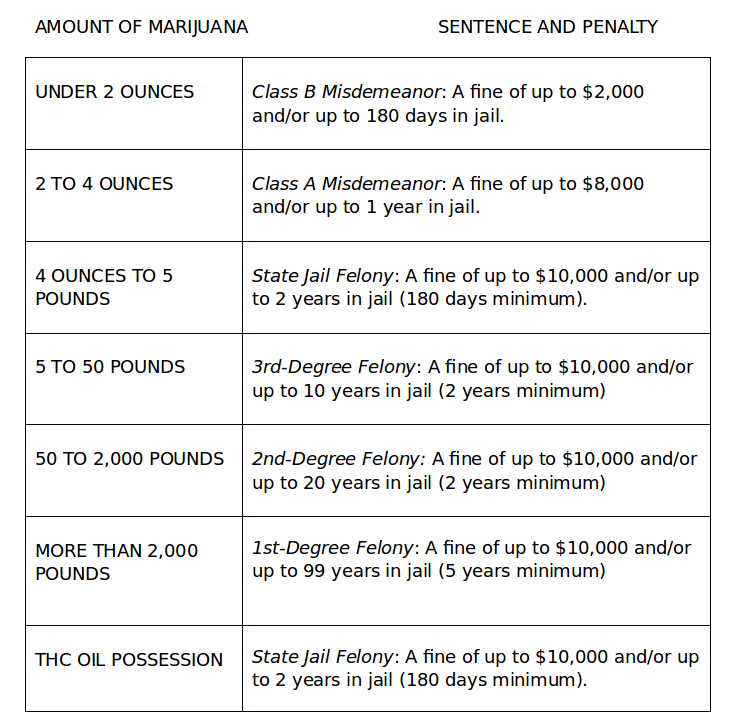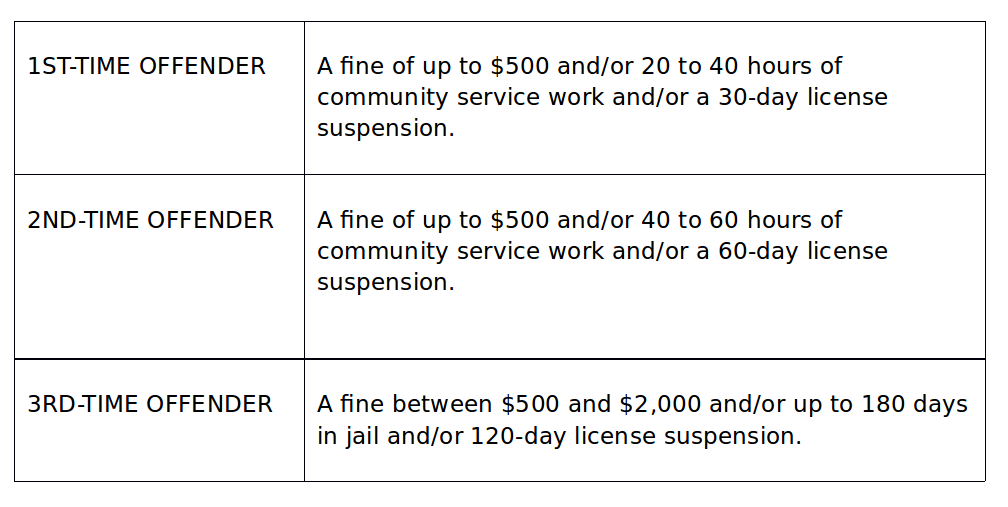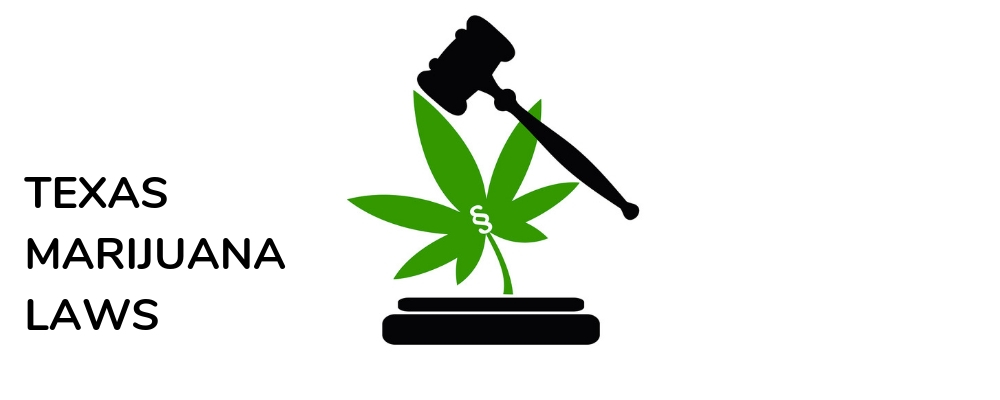ARTICLE OVERVIEW: Marijuana remains an illicit substance in Texas with serious repercussions for those who use it. This article reviews the marijuana laws in the state of Texas and the penalties given to those who break them. We invite you to ask further questions at the end.
TABLE OF CONTENTS:
- Is Marijuana Legal?
- Cannabinoid Oil
- Marijuana Laws in Texas
- Penalties
- Marijuana DUI
- Is Marijuana Addictive?
- Marijuana Treatment
- Views on Marijuana
- Your Questions
Is Marijuana Legal?
No. Marijuana is illegal for both recreational and medical use in the state of Texas. Therefore, even possession of just a small amount of weed will land you in trouble. So, whether you’re using marijuana recreationally or for self-medicated purposes, you can be arrested and penalized.
Cannabinoid Oil
A law was passed in Texas in 2015 known as the Compassionate Use Act which allows for the use of cannabinoid oil (CBD). [1] The purpose of this law is to help solely those with intractable epilepsy. CBD is a cannabis compound. Most of the time, the chemical is praised for medical benefits. When taking CBD, there’s no psychoactive reaction occurs with the plant’s other chemical, THC. [2]
CBD is currently legal to sell across the nation for two reasons:
- It doesn’t get you high.
- It has many medical benefits.
These medical benefits can not only relieve powerful illnesses such as intractable epilepsy, but they can also alleviate:
- Anxiety
- Inflammation
- Pain
- Psychosis
- Seizures
Marijuana Laws in Texas
Marijuana is illegal all throughout Texas – both medically and recreationally. There have been a few rare exceptions where certain patients are issued medical cards for the sake of addressing very strong illnesses and diseases. [1] However, it’s very unlikely you’ll receive one of these, as medical professionals typically seek out more traditional treatment rather than cannabis throughout the state.
Marijuana laws in Texas are very strict. The state has a zero-tolerance policy for drug use and these rules apply all the same to cannabis. Even having a personal amount on you will land you with a Class B misdemeanor – a fine of upwards of $2,000 and/or up to 180 days in jail. This is outlined in the Texas Health and Safety Code Section 481.115. [3]
Penalties
The following list gives you an idea of the charges which will be made against you depending on the amount of marijuana you have on you.

It should be noted the charges made against having concentrated THC (oil) will vary depending on how much you have. However, simply having any at all automatically charges you with a felony and up to 2 years in a state prison.
Also, these laws work differently depending on the situation. For example, if you’re caught selling to a minor under 17 with a transaction of 0.25 ounces (about 7 grams), then you’ll be charged with a 2nd-degree felony. If you’re caught in a drug-free zone (such as a school), your penalty will be doubled.
Are you facing legal problems? Rehab can be a first step to a new life.
Marijuana DUI
Since marijuana remains illegal in Texas, DUI laws are taken very seriously. Most people will face similar penalties to that of driving under the influence of alcohol. However, if you have marijuana on you during when you’re caught, your penalties will much more harsh. Even having just paraphernalia in the car such as a bong or pipe can be considered possession and result in a charge.
If you’re ever high and need a ride somewhere, there are other options besides getting behind the wheel yourself. These include:
- Calling a sober friend to pick you up.
- Calling a taxi or ride-sharing service (i.e. Uber, Lyft).
- Taking public transportation.
The following laws can be found under Title 10, Chapter 49. [4] They pertain only to those who are caught driving high rather than those driving high and getting caught with possession:

Marijuana changes brain function; it even drops your IQ. Call us to learn how you can quit….today.
These penalties will change depending on your situation. For example, if you have a child under the age of 15 in your car while driving under the influence, you automatically face a fine of up to $10,000 and up to 2 years in prison.
If you’re an underage driver (18 to 25), your penalties are different from the above and are as follows:

If somebody was INJURED or KILLED due to your DUI, then the above laws will be greatly affected. It’s common these circumstances will automatically result in felony charges. Particularly, if your DUI results in a fatality, you’ll automatically be charged with vehicular manslaughter under the state’s murder laws. This penalty can result in upwards of life in prison.
Marijuana can get you in a rut. Call us to learn how to live without it.
Is Marijuana Addictive?
Absolutely! Don’t be fooled by the many who’ll proclaim marijuana isn’t addictive. Just like other drugs, it contains addictive qualities.[5] Most of which aren’t properly discussed. Like other psychoactive drugs that trigger euphoria, people addicted to cannabis depend on it for mental and emotional reasons.
While marijuana tends to create more mental dependence than a physical dependence, withdrawal can occur. If you smoke marijuana regularly, you can feel the following either while the high wears off or when you can’t get access to weed:
- Anger
- Anxiety
- Depression
- Difficulty concentrating
- Irritability
- Mood changes
- Trouble sleeping
Mental dependence is a REAL thing. Turn your life around and call us for help today
Still, this isn’t to say marijuana doesn’t have physical symptoms of its own. Some smokers claim they have difficulty sleeping without it. Other say they lose their appetite. This has to do with the way in which the body becomes adjusted to marijuana. Usually, this is the case with chronic smokers rather than those who only smoke on occasion. [6] Physical signs of marijuana addiction are:
- Aggression
- Cravings
- Difficulty falling asleep
- Insomnia
- Loss of appetite
- Raise in body temperature
- Restlessness
- Sweating
Furthermore, long-term cannabis use has risks which medical researchers have only started. In one study done by New Zealand, it was found that heavy marijuana use from adolescence to adulthood showed a loss of 6 to 8 IQ points.[7] The study also found that those who smoke during adolescence then quit upon becoming an adult never regained those lost IQ points.
If you or anyone you love is currently struggling with a marijuana addiction, we can help. Give us a call on out hotline number. Compassionate operators can talk you through the treatment process and answer your questions.
You are not alone.
If you want to quit, reach out for help today.
Need help? Change is a phone call away.
Marijuana Treatment
Your options for marijuana treatment will vary.[8] Since marijuana addiction primarily affects one’s psychology, treatment focuses on talk therapy. Furthermore, no two people will have the same experience when it comes to marijuana treatment. The psychological effects of the drug are often very personal and need to be identified on an equally personal level.
Therefore, if you run into a treatment facility with the concept of “one-size-fits-all”, avoid it at all costs! Treatment should be customized to your needs! Still, the general process is about the same. All reputable rehabs follow similar steps during treatment. These include:
1. Medical Assessment
In order for a reputable facility to offer you the best treatment, they must give you a medical evaluation. This usually includes drug tests, interviews, and a full medical and family history.
2. Detox
There’s a chance you won’t need to detox from marijuana. Detox may be required for chronic smokers or people who use other drugs, especially if a cocktail of chemicals can be wired into the system and needs to be flushed out. Still, detox is primarily set up for drugs of which have strong physical addictions.
As mentioned, earlier it’s possible for marijuana to cause dependence, however, the chances of extreme side effects are much slimmer in comparison to something like opioids. If you do go through detox, you can expect to receive professional assistance in “weening” off the drug through monitoring of your health and aid in relieving certain symptoms.
3. Psychological Treatment
This is definitely the most important aspect of marijuana treatment. Many people smoke weed as a means of relieving emotional stress or handling day-to-day life. The goal of psychological treatments is to change your thoughts, patterns, and beliefs. Talk therapy will combine individual AND group counseling. It’s important to talk one-on-one with a counselor (the most commonly used practice) as it helps identify where the problem began. However, group therapy can also be highly productive as you’re able to relate with others on common issues.
4. Educational Sessions
You’ll most likely be enrolled in educational sessions as a means of teaching you about addiction. Learning about how drugs affect the brain can help you stay away from them in the future! The importance of this is to make you aware of the dangers and consequences which lie in addiction and to prevent you from relapse.
5. Supportive Services
Reputable treatment facilities will offer you supportive services which include vocational training, housing assistance, financial assistance, legal assistance, and medical assistance. Just as with detox, not everyone will need this. However, it remains an option for those who can benefit from it.
Weed is not your friend. A drug-free life is within reach!
Views on Marijuana
Since cannabis is currently becoming legal across the country, the laws in Texas may change in the near future.[9] In fact, there are many Texans pushing for at least a medical legalization as they believe cannabinoid products may help to either prevent, cure, or aid with serious diseases and illnesses. Within the cities of Austin or Dallas, you’ll find many advocates pushing for his legalization.
However, they’re outweighed by the rest of the state’s opinion.
Some states view marijuana as “okay”, something similar to that of alcohol. However, Texas isn’t one of these states. In fact, the majority of people within the state feel as though marijuana is only useful for medical purposes.[10] Take the statistics below recorded by the University of Texas/Texas Tribune poll where the question was asked, should marijuana be legal? [11]
- 18 to 29:
◦ Never – 15%
◦ Medical purposes – 26%
◦ Personal use – 20%
◦ Any use – 39%
- 30 to 44:
◦ Never – 17%
◦ Medical purposes – 27%
◦ Personal use – 28%
◦ Any use – 28%
- 45 to 64:
◦ Never – 14%
◦ Medical purposes – 30%
◦ Personal use – 35%
◦ Any use – 21%
- 65+:
◦ Never – 18%
◦ Medical purposes – 42%
◦ Personal use – 32%
◦ Any use – 8%
The importance of these statistics is it gives you an insight as to how the public feels about marijuana. And the potential changes in the law which may or may not be made in the near future.
Your Questions
If you have any further questions regarding Texas’s marijuana laws, we invite you to ask them below. If you have any advice to give for people seeking more information on Texas’s marijuana laws, we’d also love to hear from you. We try to reply to each comment in a prompt and personal manner.
Remember that you are not alone.
A telltale sign of a problem is that you keep smoking weed even if you want to quit. It can result in illnesses, missed work, and broken relationships. If you still can’t quit on your own, an addiction is likely present. And addiction to marijuana is real!
Want to learn more? The Diagnostic and Statistical Manual of Mental Disorders outlines criteria of addiction. Learn how professionals diagnose marijuana addiction today.









Related Posts